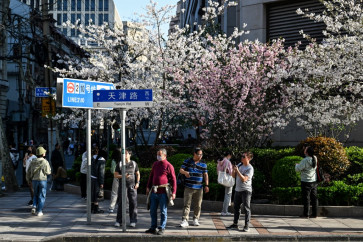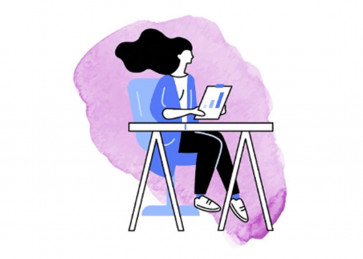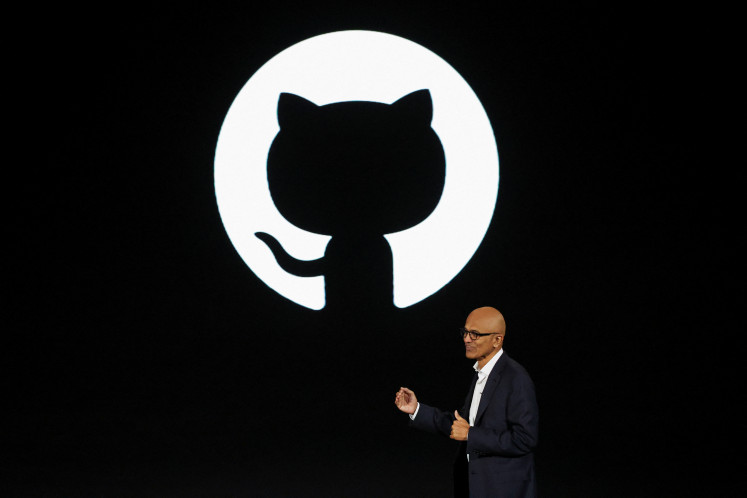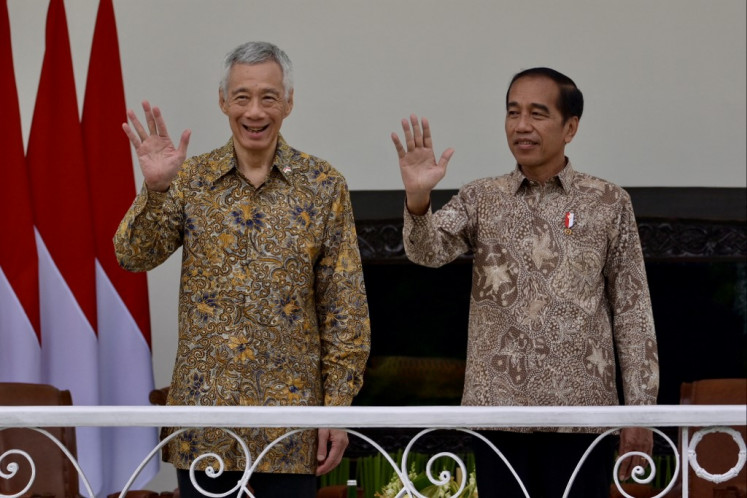Insight: Turning the tide: Empowering women to protect our oceans, future
Billions of people around the world depend on the fresh food and livelihoods provided by healthy oceans
Change Size

B
span>Billions of people around the world depend on the fresh food and livelihoods provided by healthy oceans. In fisheries, one in two seafood workers is a woman. Yet, women are largely concentrated in low-skilled, low-paid, seasonal jobs without health, safety and workers’ rights protections. For the same work in aquaculture, women earn only around 64 percent of men’s wages, despite facing the same risks of ocean degradation and with less resources to build resilience.
In many parts of the world, women’s contributions, both toward ocean-based livelihoods and conservation efforts, have been largely invisible.
In Indonesia, it’s fair to say that the work of women represents half the catch in the fisheries sector, currently valued at over US$18 billion annually. Yet, growing up, we know the people who bring us our fish as “fishermen”. The image in many of our heads is of men hauling in the catch from the oceans, returning with boats full of fish. But this stereotype shows only half the picture.
Don’t women go out to sea to fish as well? And what happens after the fish is caught? What about shellfish and the octopus I love to eat with sambal (chili sauce)? I have seen an entire sea of women working hard in a long chain of supply to get fish from the boats and the coasts to our plates.
In our country, small-scale fisherwomen are still undermined and marginalized as they are fighting to be acknowledged as fishers, rather than as fish workers. In Moro village of Demak, Central Java, women endure difficulties in getting recognized as fishers on their ID cards, mostly due to cultural and religious perceptions. The local chief insists that women cannot be considered fishers as they merely help their spouses.
Yet, in Moro, 27 women who own small fishing boats under 10 giga tons (GT), sail themselves to the sea, and catch fish to satisfy their economic needs. One fisherwoman named Sari Umrah must fish for crabs because her husband has a heart disease that forces him to stay at home. These women need to be formally acknowledged as fishers on their IDs to enable them to apply for a fisherman’s card and fishermen’s insurance.
Without the insurance, these women will have to go fishing without any protection for their health and incidental damages at sea. The law does not differentiate between fishermen and fisherwomen, meaning they both have rights to obtain Fishermen’s Insurance as long as their fishing boats are under 10 GT.
Thankfully, in the neighboring village Purworejo, the voices of women and the community are heard by the local chief, where he grants acknowledgement of women as fishers on their ID cards. The lurah (subdistrict head) sees that men and women can both work as fishers and their occupation should be rightfully stated on their ID card.
I am glad that despite the challenges, two women, Masnuah of the Association of Indonesian Fisherwomen (PPNI) and Susan Herawati of the People’s Coalition for Fisheries Justice (KIARA), persist in advocating fisherwomen to be aware of their rights, at least their rights to obtain fishermen’s insurance. They persistently fight to raise awareness on fisherwomen’s rights in Moro village and demand that the village head acknowledge women as formal fishers. Their voices need to be heard, amplified and unequivocally supported by everyone in this country.
As the world’s second-largest producer of capture fisheries, Indonesia’s fisheries industry is a key pillar of our economy and food security. Closing the gender gap will enhance women’s economic empowerment, strengthen Indonesia’s leadership in sustainable fisheries and drive economic development.
Many other marine resources bring us prosperity. Over the last decade, Indonesia has increased its seaweed farming output from less than 4 million tons in 2010 to over 11 million tons in 2015 and 2016. More workers are needed to deal with the demand.
Near Wakatobi National Park, Southeast Sulawesi, seaweed grows abundantly thanks to the spillover of well-protected and healthy seas. In Liya Mali village, amid growing demand for seaweed, fishermen have invited women to help process 30 hectares of seaweed gardens. Harvested quarterly, the women process raw seaweed into higher-value products such as noodles, cotton candy and snacks, increasing the income potential from seaweed. Beyond pure economics, these women are becoming community leaders, working with conservation NGOs such as the World Wide Fund for Nature Indonesia (WWF Indonesia) and other villagers, to stop garbage and litter from leaking into the ocean, and planting over 600 mangroves along the coast to protect water quality and coastlines.
In 2017, the Maritime Affairs and Fisheries Ministry set up gender mainstreaming policies to enable women to gain equitable roles and benefits in fisheries. Many programs must now focus on providing capital for women to diversify their income streams and reduce over-reliance on fishing, while more than 400 independent marine training centers are training women to process fish products.
This year’s World Ocean Day on June 8 and Coral Triangle Day on June 9 were focused on the theme of gender equity and mainstreaming in the marine and fisheries sector — a theme that I am personally connected to as a woman leader in this sector for the past five years. As a member of the intergovernmental platform — the Coral Triangle Initiative for Coral Reefs, Fisheries and Food Security — Indonesia has the responsibility to be an active role model for other countries in the Coral Triangle and beyond.
I am happy when I am out at sea with my fellow fisherwomen and men, ensuring that we keep our sovereignty intact and achieve the sustainability and prosperity that our oceans bring to our nation. Let’s protect our oceans with gender equality and equity in mind. We still have a long way to go but I know we are sailing in the right direction.
_____________
The writer is the maritime affairs and fisheries minister.









